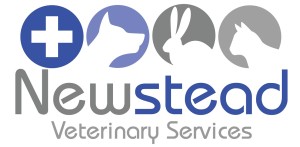Are you aware of the growing (quite literally) problem of obese cats and dogs?? Stats are showing that 1/3 of owned dogs and 25% of owned cats are all obese. This can result in diabetes, heart disease, arthritis, joint problems and a lower life expectancy than a healthy pet.

A lot of the problem is based on the fact that the pet’s owner has no idea that their beloved pet is actually overweight. This only suggests that there is widespread misunderstanding about what a healthy-sized pet looks like.
Sadly, owners think that by feeding their pets food scraps and giving them a number of treats throughout the day, as well as their daily meals, that they’re showing unconditional love.
While some drugs and some disease conditions (i.e. hypothyroidism) may cause a pet to be overweight, more often obesity is caused by overfeeding and feeding high calorie foods (i.e. table scraps).
When viewed from above, your pet’s back should show some gentle curves: a gentle dip after the ribs (waist area), a gradual slope to the base of the tail. When viewed from the side, you should see a “tucked up” area just before the hind legs (not a flat line along the base of the belly). If your pet has a long coat that prevents easy viewing, gently running your hands along the top outline of your pet should reveal these natural curves.

With gentle fingertip pressure, you should be able to feel your pet’s ribs easily. If you can only feel cushioned body wall, your pet is carrying too much weight.
Pets of optimum body weight and in good health are usually up for a brisk walk or a game of catch anytime their owner is willing. Pets who are overweight may have the intention, but are soon panting excessively or taking frequent rest breaks just to keep up.
In addition to the body having to work harder just to move around, overweight pets overheat easily. Fat is a great insulator. This condition is known as “heat intolerance”, and will put overweight animals at greater risk for heat stroke.
With the help from your Vet (if needed) and you making sure your pet sticks to a strict diet (i.e. no snacks or food scraps), you can help prevent obesity and possible further medical conditions later in life. Just think of all those possible vet bills that could potentially be prevented…..
Pop into the clinic and get a free weight check now!
Here are some of the diets we recommend for overweight cats and dogs:
Royal Canin Canine Obesity
Royal Canin Feline Obesity
Royal Canin Feline Obesity WET


No comments yet.